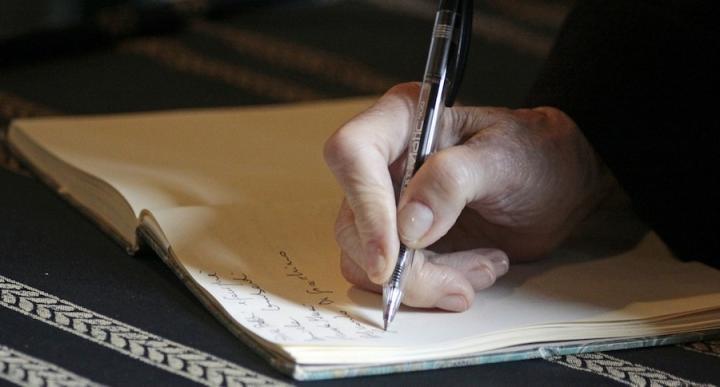Self-Published Authors Cannot Afford to Abstain from Hiring a Book Editor
2007 was a great year for authors. Amazon launched Kindle Direct Publishing (KDP) and made self-publishing easier than ever before. The days of printing 500 books and selling them from the trunk of a car were over. Vanity presses–companies who had no criteria for publication and made money by selling printed books to authors rather than to customers–began to die out, although some still exist. There was no longer a need to write a book, have beta readers review it, query agents, shop the book to publishers, sign a publication contract, receive an advance, and have book royalties paid out twice a year. The gatekeepers were obsolete and authors could go directly to the consumer. However, aspiring and self-published authors can now bypass publishers, they still need to hire a book editor.
Book editors worked in the dominion of traditional and smaller publishers. When authors or agents submitted manuscripts for publication, it was up to the publisher to provide an editor before the book went to print. In the days of KDP, authors must now hire their own freelance editor before a book goes to into publication either in ebook, print, audiobook, or all three.

Benefits of an Editor
Another set of professional eyes to look over a manuscript is essential, whether an author is starting his or her first book or they have ten traditionally published books. Self-editing is important, but it will only get them so far. Writers cannot expect to find every single typo in their manuscripts. They can read the same mistake over and over, but they will not see it because their brain knows what they wanted to write and that is how they will read it.
Authors are too close to their story. They have pages and pages of backstory, written descriptions and, perhaps, had whole interview-style conversations with their characters. The author knows everything about their book, but what matters is if the reader can understand what is happening. Much like how the brain will not allow the writer to read the mistakes, the same is true for the context of the story.
Writers Are not Editors
Many authors think other writers could help them with the story. Shopping manuscripts in writer’s workshops or sending them to beta readers is important, but neither of these will replace a book editor for the very simple reason of communication. What sets a book editor apart from all others is they have the ability to recognize an issue with the manuscript and can articulate what the issue is and how to fix it. There is no guarantee other author friends or beta readers will pick up on these issues. Sure, other writers will pick up on the glaring mistakes, but editors recognize many subtleties that would otherwise go unnoticed. Editors are a stand-in for the reader. They read like readers, not writers–even if they are a writer themselves. Book editors are trained and practiced professionals who can identify the signs of a weak section and can propose actionable solutions to address it.
Editors Make for Better Writers
The benefits of a book editor go beyond the words on the page. They can also boost a writer’s confidence in his or her own work. Getting feedback can re-energize and focus an author, especially a new one. Critical feedback can sometimes hurt, but it is necessary for the book publishing process and is an excellent learning tool. Each time a self-published author works with a book editor, they should learn something new to become a better writer.

Different Editors for Different Editing
Hiring the right book editor is easier said than done. There are several different types of editors, but the three most popular are: developmental, copy, and proofreader.
A developmental book editor is the often the first stage in the editorial process after writing and self-revision of a manuscript. They can also offer storyboard critiques before the first words of prose are written. Developmental book editors look at the story as a whole. They provide the self-published author feedback on the story arc, the point of view, characterization, plot, setting, dialogue, “show, don’t tell,” and more. These book editors make sure the manuscript tells a full story with all the details, action, characters, and backstory that are required. They do not edit the words on the page; that is the job of a copy editor.
A copy editor edits what was written down and is the second step in the editorial process. These book editors improve readability of the prose by looking at the tone, voice, sentence structure and variation, and more. A copy editor ensures the manuscript's prose does not bore the reader or break them out of the story.
Proofreading is the final step in the editorial process. A proofreader reads the manuscript for spelling, grammar, and punctuation. They offer an in-depth line edit to ensure no typos make it
Finding the Right Editor
Knowing which type of editing an author needs is crucial. Some book editors can fulfill the roles of all three types of editing and some specialize in only one or two. Editing rates fluctuate based on the type of editing required. Also, many editors will specialize in fiction, nonfiction, or specific genres. Self-published authors should always ask what types of editing a book editor provides and seek editors who edit in their particular genre.
It falls to the self-published authors to hire professional book editors. With KDP and other platforms, selling straight to the consumer and bypassing traditional publishers is becoming the new normal. A well-edited book will increase its readability and satisfaction of the reader, saving the author’s reputation. For self-publishing to ever lose the negative stigma of inferiority in the eyes of some literary communities, self-published authors must hire professional editors to ensure the quality of their book is similar or greater than that of traditional publishing.
Comments